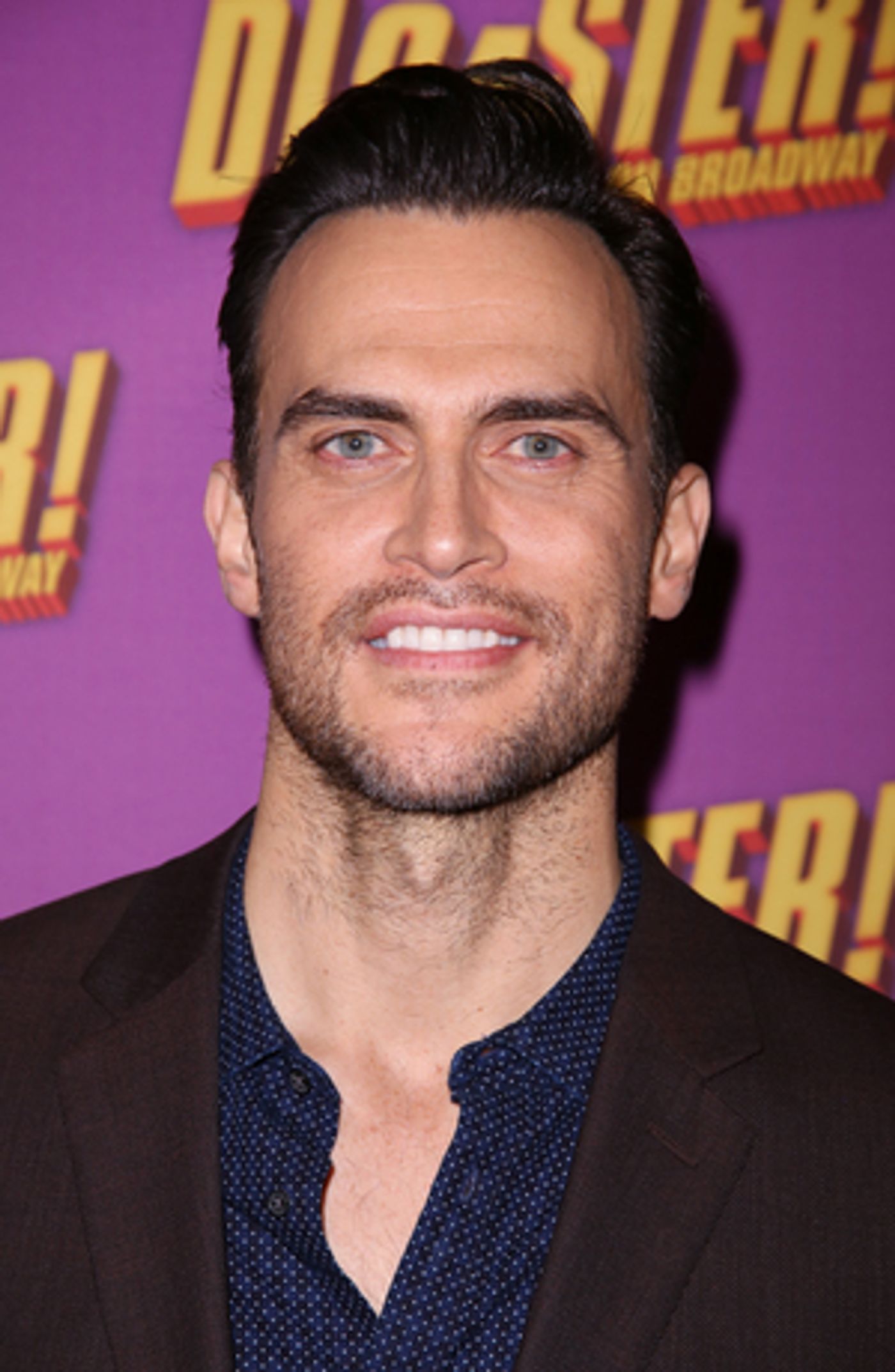Cheyenne Jackson, Dove Cameron, Drew Gehling, Shereen Pimentel and More Featured in Myths and Hymns' LOVE
The 1998 cycle is a kaleidoscopic collection of musical genres as it explores the nature of faith and longing in a secular world.

MasterVoices will present Love, the third chapter of its central project for the 2020-2021 season: a four-part virtual rollout of award-winning composer Adam Guettel's theatrical song cycle, Myths and Hymns. Conceived and supervised by Mr. Sperling, this free digital production will be offered starting on Wednesday, April 14 at 6:30 PM ET on mastervoices.org and the ensemble's YouTube channel.
Inspired by Greek myths and a 19th-Century Presbyterian hymnal, the 1998 cycle is a kaleidoscopic collection of musical genres as it explores the nature of faith and longing in a secular world. New short musical films illustrate the protagonist's exploration of Flight, Work, Love, and Faith. Love features the MasterVoices chorus and soloists Dianne Drayse Alonso, Nina Bernstein, John Brancy, Dove Cameron, Drew Gehling, Cheyenne Jackson, Shereen Pimentel, and Lori Wilner. Also contributing are directors Victoria Clark and Ted Sperling, visual artist Earl Womack, and orchestrators Don Sebesky and Jamie Lawrence.
Myths and Hymns' first chapter, Flight, launched on January 13 followed by Work, the second chapter which premiered on February 24, and the fourth chapter, Faith, will be released for streaming on May 26. All chapters will remain available for free streaming from their respective launch dates until June 30, 2021. On the evening prior to each installment's public launch, MasterVoices hosts a private virtual screening with additional content featuring Ted Sperling and some of the artists. More details on the screenings are available here.
More About Myths and Hymns
Following his Obie Award-winning 1996 musical Floyd Collins - for which Ted Sperling served as Music Director - Adam Guettel's next project was the song cycle Myths and Hymns. The songs were inspired by two very different sources: the ancient Greek stories of Icarus, Pegasus, Hero and Leander, Sisyphus, and Perseus and Medusa, and Protestant hymn texts that the composer found in an antique hymnal. It was workshopped in several forms and venues and ultimately performed as Saturn Returns in an extended run at the Joseph Papp Public Theater in 1998, where it became a must-see event. Sperling and Guettel made a recording of selections for Nonesuch Records using the original title, and ever since then the work has been known as Myths and Hymns.
The song cycle opens with a jaunty prologue, Prometheus, and is sparked by the song Saturn Returns: the Flight. This song lays out the central issue that the cycle is attempting to resolve: a "hunger inside" that is not easily categorized or sated, a feeling that something has been lost, a yearning for completion, for fulfillment. The four chapters then explore different "places" where the answer may lie. In the first chapter, Flight, the answer seems to be "up," or "away." Guettel frames the myth of Icarus as the story of a young man striving to get out from under his famous father's shadow and shine like the sun. After his crash, the solace and hope of Migratory V expresses the human aspiration to fly together and soar above the troubles below. The retelling of Pegasus explores the fall of the hero Bellerophon when he angers Zeus. The chapter ends with the cycle's first hymn text, Jesus, the Mighty Conqueror, with its refrain consisting of the single word, "rise," repeated over and over.
In the second chapter, Work, the possible answer comes in dedication, striving, and struggle. Children of the Heavenly King/At the Sounding is a call to action creating an ebullient mood, and in contrast, Build a Bridge describes the sense of futility of attempting a bridge too difficult to cross. It is followed by the humorous back-and-forth motion of Sisyphus, who is relentlessly optimistic that he will finally succeed in pushing the rock to the top, and the chorus, which is forced to watch his vain efforts. Life is But a Dream takes "Row Your Boat" as a jumping-off point, and asks ruefully, "Is it really like the song? Do we gently row along?" The chapter ends with Every Poodle with scat lyrics and raga-inspired dance breaks, a release after all this effort.
Love, the third chapter, begins with an a cappella vocalese from the chorus, expressing the longing for someone to love, to feel complete with. This flows directly into Hero and Leander, which evokes the sounds of the roiling waves that must be braved for the lovers to unite. Come to Jesus intertwines the story of a young couple's dissolution because of an unwanted pregnancy with the haunting hymn text of the title. Medusa will be included in Myths and Hymns for the first time, in a new version prepared by the composer. The song recounts the story of the warrior Perseus who beheaded the formidable Medusa, one of three Gorgon sisters whose gaze turned men to stone. It premiered in 1988 at Home for Contemporary Theater and Art in New York City and has not been performed since then. The chapter ends with the wistfully humorous and self-involved How Can I Lose You?
Wednesday, April 14, 2021, 6:30 PM ET
Myths and Hymns - CHAPTER THREE: LOVE
Music and Lyrics by Adam Guettel
Orchestrations by Don Sebesky and Jamie Lawrence
MasterVoices
Ted Sperling,a?? a??Artistic Director and Conductor
Lonely
MasterVoices
Ted Sperling, director
Hero and Leander
MasterVoices
Cheyenne Jackson, soloist
Ted Sperling, director
Come to Jesus
Shereen Pimentel, soloist
Drew Gehling, soloist
Victoria Clark, director
Medusa
MasterVoices
John Brancy, soloist (Perseus)
Nina Bernstein, soloist (Medusa)
Lori Wilner, soloist (Stheno, Gorgon sister)
Dianne Drayse Alonso, soloist (Euryale, Gorgon sister)
Earl Womack, visual artist
How Can I Lose You?
Dove Cameron, soloist
Ted Sperling, director
Videos


